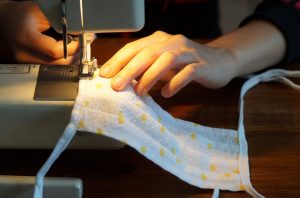
The development and distribution of COVID-19 vaccines have brought hope in the fight against the ongoing pandemic. After a saliva test for covid, those who found themselves positive should consider getting vaccinated, but only after they are declared virus-free. As vaccination efforts continue to expand, individuals need to consider various factors before getting the COVID-19 vaccine. Here are various pointers worth considering if you plan on getting the COVID-19 vaccine. Here’s what you need to do:
Understand Vaccine Safety and Efficacy
Take the time to educate yourself about the safety and efficacy of the available COVID-19 vaccines. Familiarize yourself with clinical trial data, review information from regulatory authorities, and seek reputable sources for accurate and up-to-date information. Understanding the science behind the vaccine can help alleviate concerns and build confidence in its benefits.
Evaluate Your Personal Risk Factors
Consider your risk factors for COVID-19. Factors such as age, underlying health conditions, occupation, and exposure are crucial in assessing your vulnerability to severe illness. Discuss these factors with your healthcare provider to determine the priority and timing of vaccination for your specific situation.
Assess Vaccine Availability and Prioritization

The availability and prioritization of COVID-19 vaccines may vary depending on your country or region. Stay informed about vaccine distribution plans, roll-out phases, and eligibility criteria established by public health authorities. Understand the vaccination process in your area to ensure you receive the vaccine when it is appropriate for you.
Consider Potential Side Effects
Like any vaccine, COVID-19 vaccines can have potential side effects. Educate yourself about the common side effects and the expected duration of these effects. While adverse reactions are typically rare, being aware of the potential symptoms can help you monitor your health and get the appropriate medical attention if needed.
Address Allergies and Medical Conditions
If you have a history of severe allergies or underlying medical conditions, discuss these with your healthcare provider before receiving the COVID-19 vaccine. Certain allergies or medical conditions may necessitate additional precautions or considerations when it comes to vaccination.
Evaluate the Benefits of Vaccination
Consider the impact of the virus on public health, your well-being, and the potential benefits vaccination can bring to individuals and communities at large. Recognize that vaccination not only protects you but also helps reduce the transmission and impact of the virus on society.
Before getting the COVID-19 vaccine, it is crucial to consider various factors contributing to your decision-making process. Consult with healthcare professionals, understand the safety and efficacy of the available vaccines, assess your risk factors, stay informed about vaccine availability and prioritization, consider potential side effects, address allergies or medical conditions, and evaluate the benefits of vaccination. By making an informed decision, you can take a proactive step towards protecting yourself and contributing to the collective effort in controlling and ending the COVID-19 pandemic.



 N95
N95 They can also help reduce exposure to other people’s saliva and respiratory secretions. Non-medical face coverings include reusable fabric masks, bandanas and scarves and are used in the same way as surgical masks to protect against large particles or breath droplets. If everyone wears a mask when they leave home, people who have no symptoms but have the virus in their mouth and nose can wear a physical barrier that can trap infected droplets that escape from their mouth and nose. It is also thought that wearing masks may inadvertently encourage people to touch their faces more.
They can also help reduce exposure to other people’s saliva and respiratory secretions. Non-medical face coverings include reusable fabric masks, bandanas and scarves and are used in the same way as surgical masks to protect against large particles or breath droplets. If everyone wears a mask when they leave home, people who have no symptoms but have the virus in their mouth and nose can wear a physical barrier that can trap infected droplets that escape from their mouth and nose. It is also thought that wearing masks may inadvertently encourage people to touch their faces more.